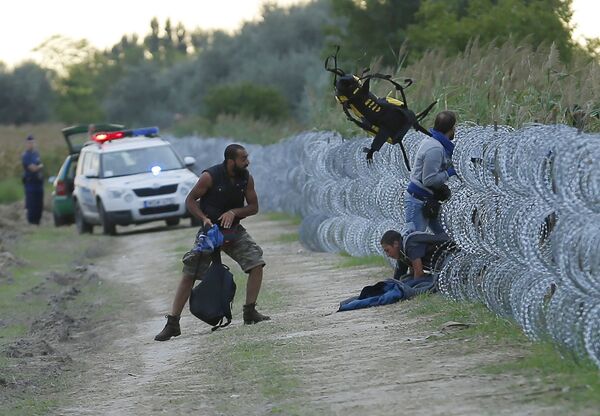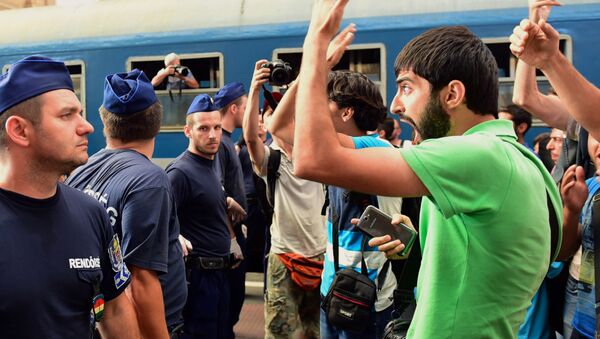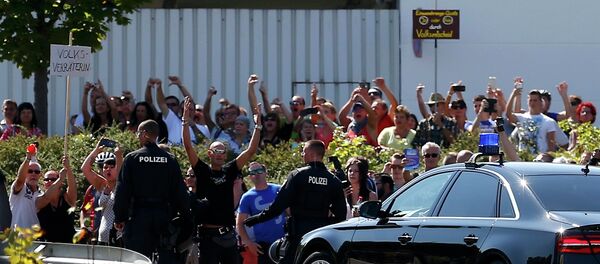Around 1,000 people had gathered outside Keleti station having bought tickets to travel to Austria and Germany but now they're being forced to wait outside, unable to continue with their journey through Europe.
Police evacuating Budapest Keleti train station, many hundreds of migrants blocked again from travel to Germany pic.twitter.com/ythSuqnlNW
— Peter Murphy (@MurphyPeterN) September 1, 2015
The decision to close Budapest's main station to refugees and migrants was made by the Hungarian authorities. A government spokesman said Hungary was trying to enforce EU law, which requires anyone traveling through the borderless Schengen area to hold a valid visa.
However, just days before the station's closure in Budapest, authorities allowed thousands of people to travel — unchecked, and without EU documentation — to Vienna and Munich from Hungary, in what could be seen as retaliation for last week's decision by Germany to loosen the Dublin rules.
Freedom of Movement. Set them free NOW! #Keleti #Hungary #refugeeswelcome pic.twitter.com/0mfmzwmlEm
— matahari_etc (@matahari_etc) September 1, 2015
The relaxed stance from Germany to allow more Syrians to stay in the country is being seen as a soft touch by other EU member states, who are struggling to cope with the thousands of asylum seekers and refugees they receive every day.
Chaos in Central Europe
Record numbers of refugees arrived in Austria's capital Vienna on Monday, with police reporting 3,650 people on board trains from Hungary via the Western Balkan route, which has overtaken the Mediterranean Sea as the busiest passage to the Europe Union.
Refugees and asylum seekers start the final leg of their journey to the EU from Turkey, then onto Greece, and then overland across Macedonia to Serbia and Hungary — finally, hoping to arrive in Northern Europe.

Macedonia declared a state of crisis last week after migrants clashed with paramilitary police while Hungarian officers used tear gas to control people trying to cross its newly constructed razor wire fence along its border with Serbia. Greece is also struggling to cope with the sheer numbers arriving on its shores.
Meanwhile, Germany is reiterating calls from the European Commission for a fair distribution of the migrants among all EU member states; the quota system has, so far, been rejected.
Leaders of Hungary, Poland, the Czech Republic and Slovakia will meet in Prague to discuss the refugee crisis gripping Europe on Friday. They're expected to continue to take a tough stance which has been described by the French foreign minister as "scandalous".
German Chancellor Angela Merkel is calling for all EU leaders to be fully on board to find a solution to improve the refugee situation and for each EU member state to allow a fair proportion of asylum seekers to settle on their soil.
Meanwhile, hundreds of migrants with train tickets for Germany remain stranded at Hungary's international railway station as the refugee crisis continues to engulf Europe.



